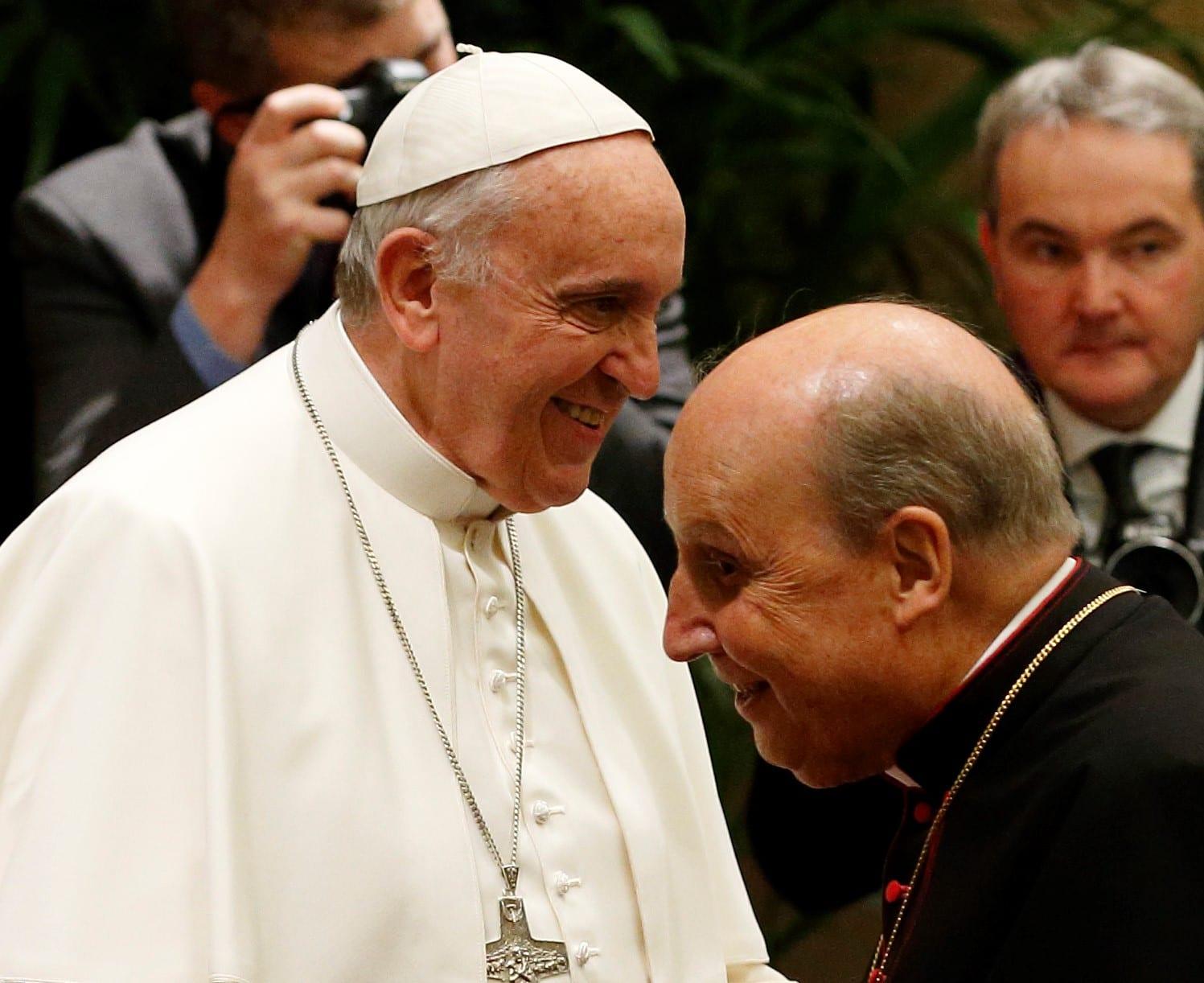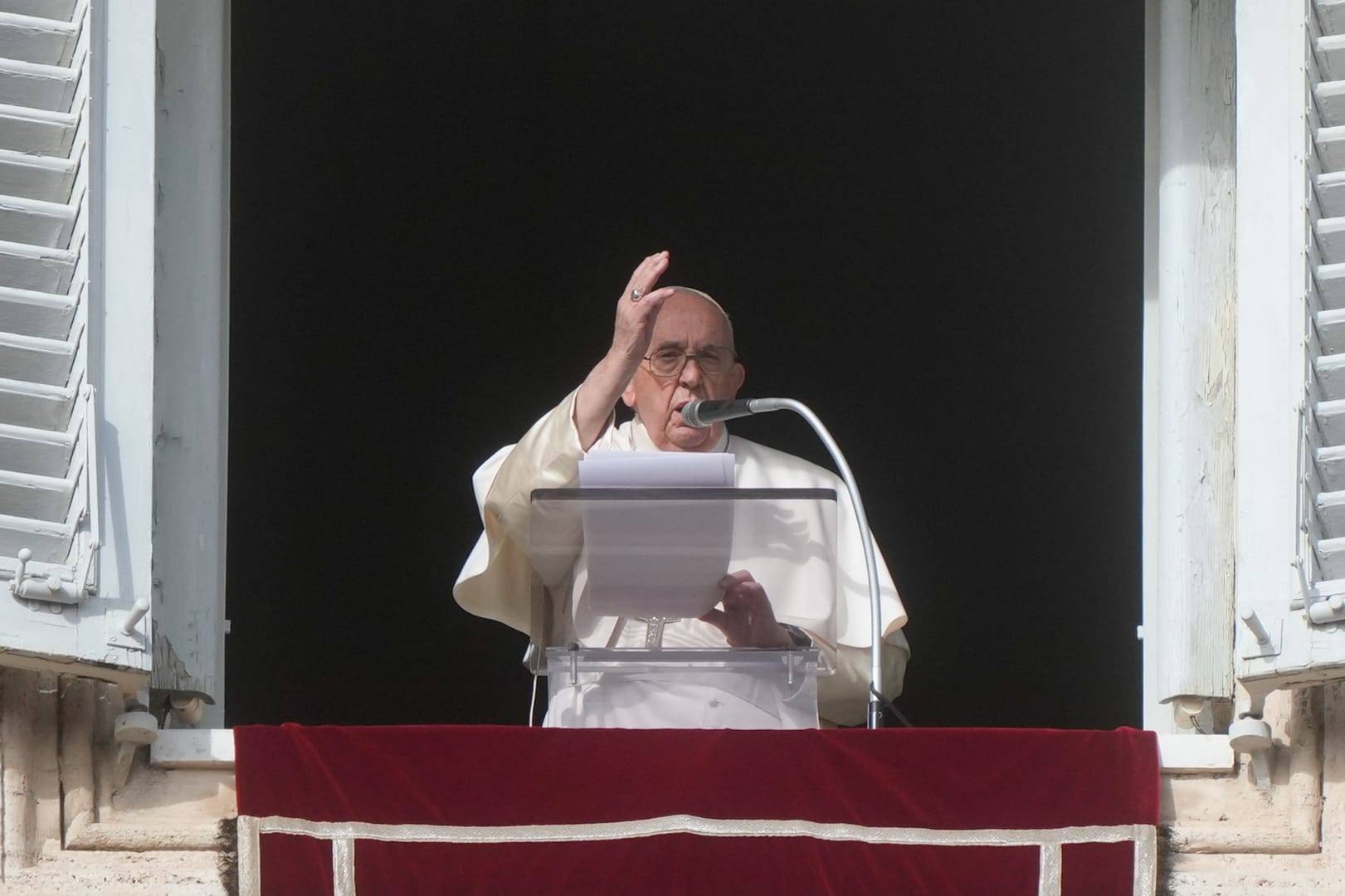ROME— After the December death of Bishop Javier Echevarría, the Catholic organization Opus Dei today begins the process of choosing a new leader, who for the first time will be a someone who wasn’t a right-hand man of their founder, Spanish St. Josemaría Escrivá.
There are 94 possible candidates, all priests, coming from 45 countries. Under the rules, all are over the age of 40, all are members of the group for at least 10 years and priests for at least the last five.
For the record, none are self-flagellating assassin monks as depicted in Dan Brown’s potboiler novel The Da Vinci Code. As a matter of fact, there are no monks in Opus Dei at all … and, needless to say, no assassins.
Here’s what you need to know about “The Work,” as Opus Dei is referred to by members, and their process to elect a new prelate, as the leader is called.
A brief history of Opus Dei
Founded in Madrid, Spain, in October 1928 by Escrivá, Opus Dei was established as a personal prelature by Pope John Paul II in 1983, eight years after the death of their founder, in 1975.
Put in very simple terms (and bound, in its simplicity, to make some canon lawyers pull out their hair), a personal prelature is an entity that incorporates both clergy and laity around a specific spirituality rather than the geographic boundaries of a diocese.
So far, Opus Dei is the only personal prelature recognized by the Catholic Church.
It’s because of this canonical status that the leader of the Work is known as a “prelate” and why its 92,600 members today, most of whom are lay, and 57 percent of whom are women, tend to get irritated whenever it’s called a “movement” (or, for that matter, anything other than the technical term “prelature”).
Escrivá was succeeded by his closest aide, Álvaro del Portillo,who in turn was succeeded by Echevarría, his former secretary. Portillo died in 1994, while Echevarría passed away in Rome on Dec. 12, 2016, the feast of Our Lady of Guadalupe.
All three were Spaniards. Both Del Portillo and Echevarría had worked closely with Escrivá and were widely seen internally as authoritative interpreters of his mind, so it was almost as if the founder continued to hold the reins from beyond the grave.
One of the biggest challenges of the new prelate will be the fact that most of the candidates were teenagers at the time of Escrivá’s death.
There are currently 2,083 Opus Dei priests, plus 1,900 who are members of the Society of the Holy Cross, an association for priests. Most in the latter group were ordained in diocesan seminaries, but later in life embraced Opus Dei’s spirituality.
The prelature’s website defines “the sanctification of work, prayer and service to others, unity of life and, especially, knowing ourselves to be children of God and of the Church” as the keys of St. Josemaria’s message.
During the almost 90 years of its existence, Opus Dei has been a powerful actor in the Catholic Church, and also controversial. Lauded for its commitment to the empowerment of laity, it was also looked upon with suspicion by critics who accused the group of a cult-like internal culture.
It’s also often considered to have a conservative political and theological agenda, which plays well among some circles and not so much in others.
As prelate, Echevarría had to get through several controversies, including the aftermath of Escrivá’s beatification under St. Pope John Paul II, which many believed happened too quickly after his death. Then similar accusations arose a decade later, when Escrivá was declared a saint.
Accusations of Opus Dei being a financial empire, too aligned with a “machista” treatment of women and secrecy were common currency, leading to some bishops looking askance at the idea of an Opus Dei operation in their diocese.
Today, however, most Catholic officials see Opus Dei as they might see Caritas or the Salesians: as another piece of furniture in the Catholic living room.
The process to choose a prelate
The procedure begins today, with a meeting of the 38 women members of the Opus Dei’s Central Advisory. They will be asked to vote for the man whom they believe is best suited to become the next prelate.
Their ballots will be opened by the all-male electoral congress on Monday, Jan. 23. The congress is made up of 156 men, 62 of whom are lay and as such electors, but not eligible to be prelate.
The congress will consider the names given by the women as the candidates.
Once the new prelate has been chosen, Francis has to approve the appointment, though canonically he could refuse to do so. If tradition holds true to form, within months after the election the pope will make him a bishop.
At a press briefing on Tuesday Father Eduardo Baura, a canon law expert said that when John Paul II gave the Opus Dei its statutes, it was him who decided it’d be an electoral college that would choose the person and then it’d be up to the pope to confirm it.
Baura also said that even though the women’s vote is not binding, it does have an important consultation value that cannot be ignored: “It represents the voice of 57 percent of the members!” he said.
Possible candidates
There are several names that are currently being posed as potential prelates. Two of them are considered “obvious” possibilities: Spaniard Father Fernando Ocáriz, Auxiliary Vicar since 1994, virtually serving as Echevarría’s right-hand man, and Argentine Father Mariano Fazio, Vicar General since 2014.

Despite what their titles might lead one to infer, Ocáriz’s position is higher.
Ocáriz was born in Paris in 1944 and ordained a priest in 1971. He’s been a consultor to the Vatican’s Congregation for the Doctrine of the Faith since 1986, and, after Echevarria’s passing, became the provisional head of Opus Dei.
Fazio, born in Buenos Aires in 1960, is a man Pope Francis knows well. Before being named Vicar General, he served as rector of Opus Dei’s Pontifical University of the Holy Cross in Rome, from 2002 to 2008. From there, he served as Regional Vicar in Argentina, Paraguay and Bolivia, until he was summoned back to Rome in 2014.
Despite many seeing these two as the obvious candidates, several of the electors consulted by Crux said they didn’t want the process to be an “automatic promotion” but a decision that results from prayer.
Other names being floated are Austrian Father Ernst Burkhart; American Father Frederick Dolan, who currently serves as regional vicar in Canada; American Father Thomas G. Bohlin, regional leader in the United States; and Father Silvano Ochouodho, regional vicar in Kenya.
It’s worth noting that all the names being considered spent an important chunk of their lives in Rome.
According to the statutes of the prelature, the man chosen, who will in-house be referred to as “the Father,” has to “stand out for the way he lives the virtues of charity and prudence, for his life of piety, love for the Church and her magisterium, and fidelity to the spirit of Opus Dei.”
Josefina Maradiaga, from the Opus Dei press office in Argentina, told Crux that nationality and personal style of the new prelate “don’t matter.”
“What we want is to accompany Pope Francis in this new evangelization, and we will be as close to the new prelate as we were to the previous one,” she said. “We love him already, and we’re happy for him in advance.”
Inés Llorens, a canon law professor at Santa Croce, said that even though she’s too young to have known either Escriva or Del Portillo, the process so far has been what she had been told it would be: “The unity of the Work that prays for the ‘elder brother,’ and for whomever comes after.”
She agrees with Maradiaga that there’s no concern over who that person will be, nor is anyone thinking that because he hasn’t lived with Escriva he won’t be fit for the job.
“There’s a general sense of peace … and trust in God,” she said.

















